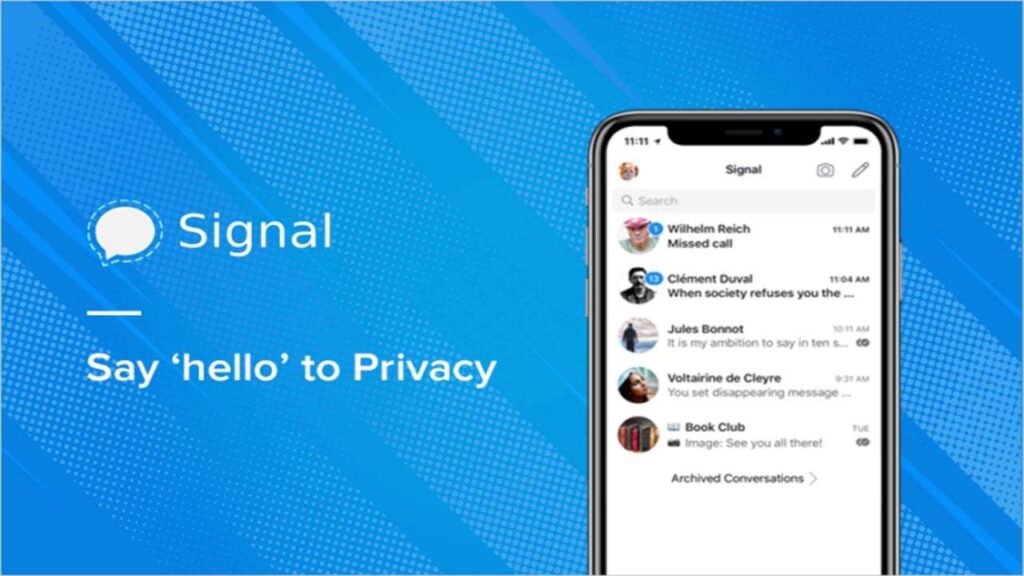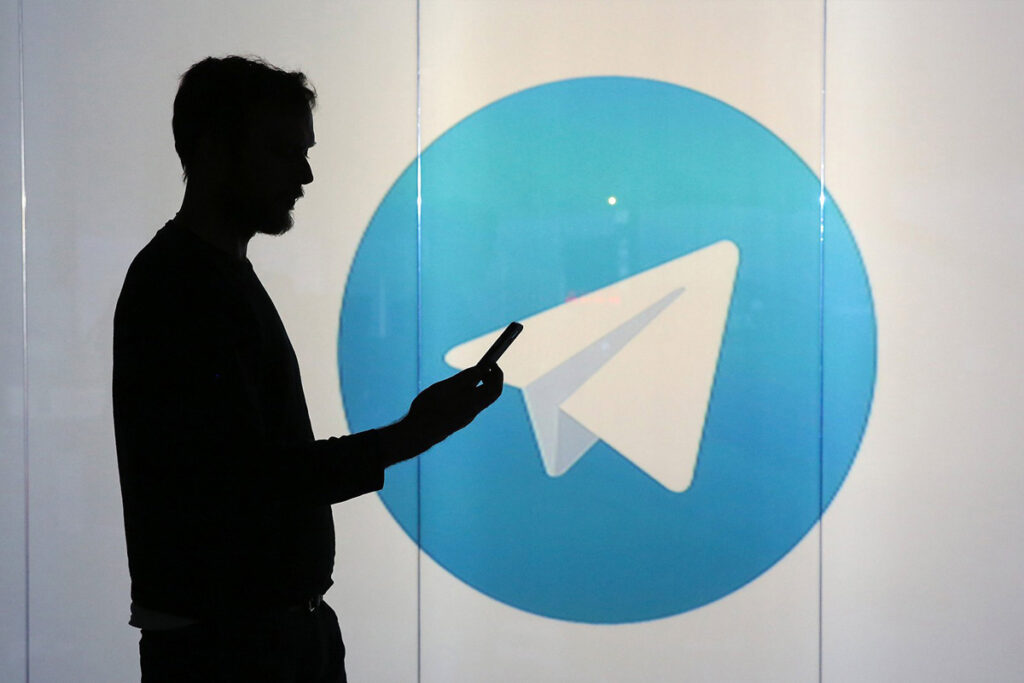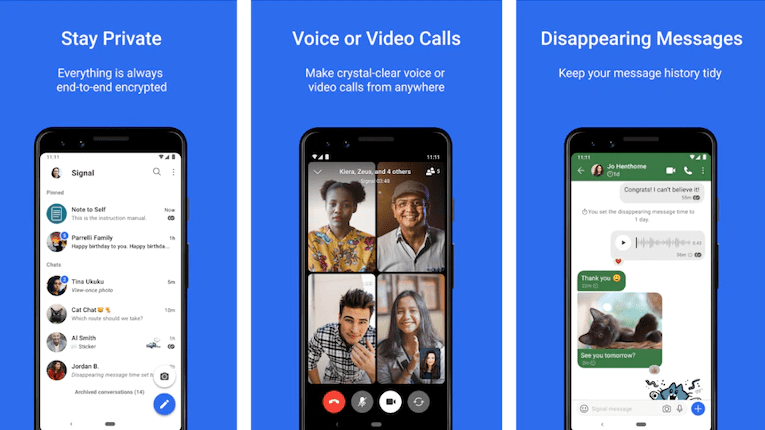We bring you an article with the main differences between WhatsApp, Telegram, and Signal, three very different messaging applications. The first is the one used by almost everyone, while Telegram is the eternal alternative. On the other hand, Signal focuses on taking better care of your privacy.
We’re going to start the article with a table where you can see the data that each of the applications links to your account, which is where you’re going to see the biggest internal differences in terms of privacy. Then, we’ll move on to talk about the functions and options offered to users in their conversations and groups. We will try not to make you dizzy with technicalities so that all users can understand it well.
Data that is linked to your account
| Telegram | Signal | |
|---|---|---|
| Phone number | Phone number | Phone number |
| User ID | User ID | |
| Contacts | Contacts | |
| Device id | Name of your account | |
| Advertising data | ||
| Shopping history | ||
| Approximate location | ||
| Product interaction | ||
| Bug reports | ||
| Performance reports | ||
| Payment information | ||
| Customer Support | ||
| Other user content |
Let’s start with a very visual table, but one that helps you get an idea of the philosophies of each product. What you see above is the data that each messaging application links to your account, obtained from the new privacy labels of the applications in Apple’s App Store. With this Apple system, you can know the type of user data that each of the applications are collecting.
Above all, it is worth noting the enormous amount of data that WhatsApp links to your user account. In part, because the application implements systems such as payment, and because they want to know the kind of errors and experience each user is having. But this is detrimental to your privacy, as it means that Facebook has much more data about you on its servers.
On the other hand, there is Telegram as an intermediate point. This application remembers the name you have given yourself, your contacts, your phone number, and your user ID. This is very essential data that serves to make it easier to identify you when you log in to another device and Telegram can save your contact list, in case you log in from your PC or another cell phone without contacts, so that you don’t lose the ones you have.
In this sense, you can see that Signal’s obsession is with privacy since it only collects your phone number to identify you as a user. This can make it uncomfortable if you’re changing devices, but if you’re looking for an application that takes care of your privacy, it’s almost unbeatable.
Other important aspects

If you are looking for privacy, Signal is a better application compared to Telegram and WhatsApp, there is no doubt about it. As Telegram is not owned by a large company like Facebook as WhatsApp is, with Signal you don’t have to accept the terms and conditions of an Internet giant, nor do you have to worry about it lying when it says it won’t cross your data.
However, you should also keep in mind that you will have to sacrifice some aspects that make applications like WhatsApp and Telegram very competitive alternatives. These are aspects that go beyond privacy, and that makes many users still reluctant to change from one application to another.

For example, WhatsApp is the application that everyone has. This is so, for better or for worse, so it has become an app that is almost essential to have installed in some device to be able to communicate with other people. It does not need to be in a mobile where you have the SIM, so you can have it in a secondary one, but the fact that everyone is inside is what drags many to not be able to leave it.

Telegram can act as a personal cloud since it makes it easy to send messages to yourself and share files with you. This makes it a very useful sort of Google Drive, which together with the fact that it does not exceed the data it collects about you, makes it a very attractive app. The bad thing is that despite having a growing number of users, it is not that app that everyone has and that you can contact your grandmother or the car repair shop with.
This means that yes, Signal is the most secure messaging application with a certain number of users that you can find, but very few of your contacts are going to be inside it. This means that even if you install it, you will have to convince the rest of the people you talk to come in too… or have an additional messaging app installed.
Essential App options
| Telegram | Signal | ||
|---|---|---|---|
| Shipping Confirmation | Yes | Yes | Yes |
| Read Cofirmation | Yes | Yes | Yes |
| Click Indicator | Yes | Yes | Yes |
| Voice Calls | Yes | Yes | Yes |
| Video Calls | Yes | Yes | Yes |
| Group Chats | Yes | Yes | Yes |
| Send Photos and Videos | Yes | Yes | Yes |
| Voice Notes | Yes | Yes | Yes |
| Video Notes | No | Yes | No |
| Send GIFs | Yes | Yes | Yes |
| Location Shipping | Yes | Yes | Yes |
| Sending Contacts | Yes | Yes | Yes |
| Sending Files | Yes | Yes | Yes |
| Personal Cloud | No | Yes | No |
| Group Video | Yes | No | Yes |
| Sticker System | Yes | Yes, and animated | No |
| Mandatory Contact Access | Yes | No | No |
| Screenshot Lock | No | Yes | Yes |
| End-to-end Encryption | Yes | Only in secret chats | Yes |
| Temporary Message | Yes | Only in secret chats | Yes |
| Notification without Messages | No | No | Yes |
| App Blocking on Mobile | Yes native | Yes | Yes |
| Confidential Sender | No | No | Yes |
| Record Lock | No | No | Yes |
In this table above, you can see that the three applications share most of the essential options, and with all of them, you will be able to send emojis, photos, locations or share your location. These are options that are offered to you, and it’s up to you how you use them to more or less take care of your privacy.

Signal adds some extra options, such as being able to activate confidential sender to send messages to strangers without sharing your profile, although Telegram also gives you quite a bit of control over who can access your profile. You can also block your registration so that only you can reuse your number to log into another device, by asking for an extra identifier. So, I can’t take a phone with your SIM and log in with your account on another phone, as it will need another pre-set PIN.
To this, we must add small details, such as that both the click indicator and the read notifications can be deactivated in Signal. You can also redirect your voice calls through Signal’s servers so as not to reveal your IP to the person or application that is calling you. Besides, there is a rather curious type of ephemeral message offered, and that is to delete messages after a certain time sent, such as expiration date, but not the most recent ones.
For its part, WhatsApp has the advantages of its system of rooms for mass videoconferences of up to 50 people, and although it is not noted in the table, Telegram has many details for their groups, such as the fact that moderators can delete content or the possibility of generating a voice chat that is not forced and can only be accessed by those who want to.
In short, Signal does not have some of those little details of WhatsApp or Telegram, such as animated or unanimated stickers or a personal cloud, but focuses all its details and small options on privacy. We can’t say that it has many differences, especially with Telegram, but sharing fewer data about you through the app is already more private, and still has good details.
This post may contain affiliate links, which means that I may receive a commission if you make a purchase using these links. As an Amazon Associate, I earn from qualifying purchases.

